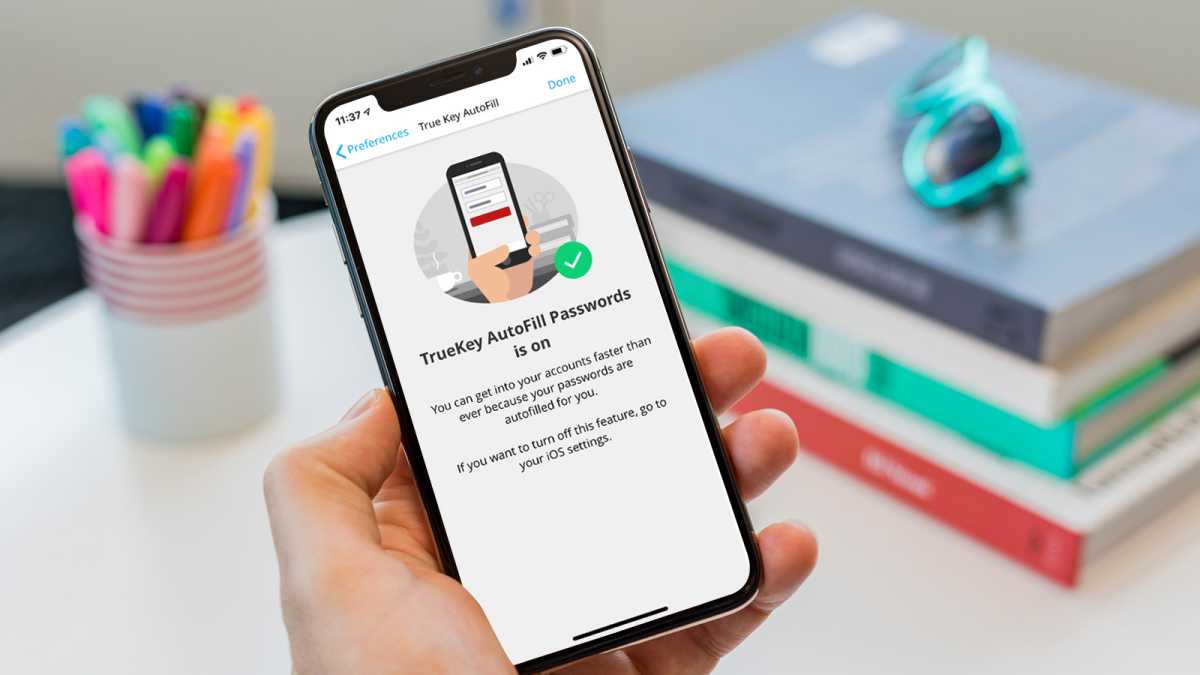
Image: Dominik Tomaszewski / Foundry
Apple might charge a lot for an iPhone, but there’s one particular benefit over Android phones that most people don’t even think about when buying one: security.
Apple has designed the iPhone’s software (iOS) in such a way that it is very difficult for malware, including viruses, to penetrate its defences. This is a good thing, of course, and it means you don’t really need to install an antivirus app. The same goes for iPads, by the way.
However, before you close this tab and carry on your merry way, that’s not the end of the story.
Scammers, cybercriminals – call them what you want – know that it’s extremely difficult to write a virus that will compromise your iPhone. They also know that it’s far easier to trick you into handing over your password, ID information and payment details which, ultimately, is what they really want.
And this is why there are so many text scams, fake websites and dodgy links on social media. They’re becoming ever-more sophisticated, but modern “antivirus” software can help to protect you – even on an iPhone or iPad.
A lot of the time, these apps are protecting you from yourself! For example, do you use the same password and email address to log into lots of different websites? Millions do, but it is a massive security risk. Imagine that just one of those sites got hacked and it hadn’t encrypted its users’ passwords. Yours, along with others, would be available to the highest bidder.
What would then happen is what’s called credential stuffing: trying that email address and password combination in a bunch of other websites to see if they work.
Since you use the same password, the hackers might have access to your bank account or, failing that, another site where you’ve stored your payment details.
Installing a good quality security app on your iPhone can avoid this situation by remembering separate passwords for each of your accounts, and entering them automatically whenever you need to log in.
Ah, but iPhones do this anyway you say. Yes, but iCloud Keychain won’t sync those logins to your Windows laptop or any other non-Apple device you use. And that’s why a cross-platform password manager is so valuable.

Dominik Tomaszewski / Foundry
Here are some of the other things that security apps can do on an iPhone and iPad:
- Warn you of potentially fake websites that might try to steal sensitive information
- Warn you of dangerous links in messages and emails
- Increase your privacy online by using a VPN
- Protect your identity by giving you early warning if any of your personal info is found on the dark web (or, indeed, the normal web)
- Protect your photos and videos so only you can access them
It might still be called antivirus software, but even though it doesn’t block viruses on an iPhone, it’s still a very good idea to use it on yours.
FAQ
1.
What’s the best antivirus for iPhone?
2.
Can an iPhone get a virus?
Technically, yes. But the chances of an infection is extremely slim, unless you’ve jailbroken your iPhone. If you don’t know what that means, don’t worry: your iPhone is safe. For a much more in-depth answer, go to our sister site, Macworld.
3.
How secure is an iPhone?
Generally speaking, very secure. The biggest risk is you. If you fall for a scam asking for money and transfer funds from your account to the scammer, the security built into your iPhone isn’t much use. That’s why we still recommend installing security software which can warn you about dangerous messages and links.
4.
Do iPads need antivirus?
Yep. For exactly the same reasons an iPhone needs it. It won’t actually monitor for or block viruses, but there are so many other threats that it can protect you from that it’s well worth installing one of the apps we’ve mentioned here.
5.
What can I do to keep my iPhone secure?
Besides installing a reputable security app, keep it updated. Any potential vulnerabilities in iOS are usually fixed in the latest software update. This is one reason why you shouldn’t ignore the reminders that a new version of iOS is available.
It’s worth noting that Android phones can get viruses, so you have both an iPhone and Android, you should install an antivirus app on your Android phone as soon as possible. Here are the best antivirus apps for Android.
Most security apps, and certainly the three mentioned here, work across iPhone, iPad, Android, Windows and macOS, so it makes sense to install the same one on all your devices for convenience, as well as because it’s always the cheapest way to protect them. See our roundup of the best antivirus software for more recommendations.
And if you’re worried about apps using your device’s camera or microphone to spy on you, then remember that all apps must ask your permission to access the camera, microphone, your contacts, photos and other things.
So only tap ‘Allow’ when first prompted if you are sure you trust the app. And make sure you read carefully what an app is asking permission for when there’s a longer list.
You should also follow the usual security advice that applies regardless of the device you’re using: don’t tap on links in emails unless you’re sure they’re from a genuine sender, don’t give out your bank details or password unless you’re absolutely sure it is safe and use an encrypted messaging service such as WhatsApp and iMessage if you ever have to share sensitive details like these with a friend or family member.


